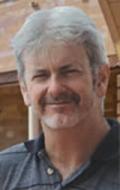
Mark Pearson
BRISBANE (Pacific Media Centre Online / Pacific Media Watch): The international media freedom group Reporters Sans Frontières (RSF – Reporters Without Borders) has released its 2011-12 World Press Freedom Index and Australia has slipped 12 places from 18th to 30th among the 179 countries ranked. New Zealand also dropped five places and out of the top 10 to 13th.
Those results and the organisation’s methodology deserve explanation and debate. As RSF’s Australian correspondent for the past six years I offer some insights on both fronts, although I am not a spokesperson for the organisation.
First to the latest ranking: what factors contributed to Australia’s decline in its media freedom status since 2010? For a start, the fact that there were five simultaneous government inquiries into news media regulation at the time it was being compiled sent a message to the international community that, for a Western democratic nation, the Australian government and its agencies were entertaining tougher regulatory measures.
They included the Convergence Review, its subsidiary Independent Media Inquiry, the National Classification Scheme Review, the Commonwealth Government’s Privacy Issues Paper and the Australian Communications and Media Authority’s review of privacy guidelines for broadcasters.
Between them they raised the prospects of new controls on print, broadcast and online media; a new tort of privacy; tough new classification systems across media; and the conversion of some self-regulatory bodies to regulatory status.
RSF was so concerned by suggestions at the hearings of the Independent Media Inquiry that journalists should be licensed or that the Australian Press Council should be given powers to fine media organisations for ethical breaches that they issued a release on the matter.
Alleged leaks
The trial of Victorian police officer Simon Artz for alleged leaks to The Australian newspaper about a counter-terrorism operation raised several media freedom issues, with Crikey senior journalist Andrew Crook allegedly breaching a suppression order by revealing the name of a former member of Victoria’s Special Intelligence Group involved in the hearing; warnings over Crikey journalist Margaret Simons live tweeting from the hearing; and The Australian’s Cameron Stewart being ordered to reveal his sources.
Victorian police launched an investigation into an alleged hacking of an Australian Labor Party electoral database by four journalists at The Age, including editor-in-chief Paul Ramage.
Government control over media access to detention centres prompted condemnation from the journalists’ union and RSF issued a release. The Department of Immigration introduced new guidelines to restrict reporting of, and access to, detention centres.
As an international NGO, Reporters Without Borders takes a special interest in human rights issues and presses for transparency and compassion in governments’ handling of refugees.
The Federal Court’s ruling that hate speech laws should trump free expression was of concern when a judge ruled Herald Sun columnist Andrew Bolt breached the Racial Discrimination Act in his criticisms of fair-skinned indigenous people.
Senior Fairfax executives were summonsed by the Police Integrity Commission to produce documents revealing sources in September in relation to articles by Herald journalists Linton Besser and Dylan Welch about the NSW Crime Commission.
Denied access
In May 2011, the ABC used a programming exemption to FOI laws to deny The Weekend Australian and Herald Sun access to its audience data and employee salaries.
Earlier, Fairfax’s deputy technology editor Ben Grubb, 20, was arrested after reporting on a conference presenter’s alleged hacking at the AUSCert IT security conference.
Read the full article and fror links here
PACIFIC MEDIA FREEDOM 2011 REPORT - The Pacific Journalism Review status report:

This work is licensed under a Creative Commons Attribution-NonCommercial 3.0 New Zealand License.



